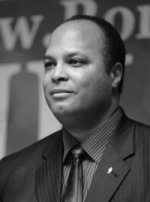 (June 10, 2009) Maryland's history and the history of our nation are deeply intertwined. Annapolis was the temporary capital of the United States from the fall of 1783 to the summer of 1784, and it was in Annapolis that General George Washington resigned his commission as commander-in-chief of the Continental Army.
(June 10, 2009) Maryland's history and the history of our nation are deeply intertwined. Annapolis was the temporary capital of the United States from the fall of 1783 to the summer of 1784, and it was in Annapolis that General George Washington resigned his commission as commander-in-chief of the Continental Army.
It is General Washington that is believed to have given Maryland the nickname "The Old Line State" in reference to the bravery in battle of the state's regular troops, the Maryland Line. Francis Scott Key wrote "The Star-Spangled Banner" in Maryland, inspired by his personal observation of the American flag still flying over Fort McHenry after 25 hours of continuous bombardment by the British fleet during the War of 1812's Battle of Baltimore.
Our shared history has yet another point of intersection, the genesis of religious tolerance in America.
On June 20th in St. Mary's City, we commemorate the 375th anniversary of Maryland's founding. Like many colonists who came to America, a key motivation for the establishment of the Province of Maryland in 1634 was religious tolerance, especially for people of the Catholic faith. Just as the pilgrims landed on Plymouth Rock to escape religious persecution in Europe, Maryland was to be a haven for Catholics who had long endured the bedevilment of the Anglican Church of England.
Of course, like all good Americans, Maryland's founders, the Calverts, wanted to make a buck as well; after all, personal and economic liberty have always been great partners. Realizing that both Catholics and Protestants were needed to build a viable colony and that, in fact, Protestants were in the majority, the Province of Maryland instituted the Maryland Toleration Act, also known as the Act Concerning Religion, in 1649. The act called for freedom of conscience for all Christians, although denying the divinity of Jesus was punishable by death. Today's liberals ought to stick that in their pipes and smoke it before declaring modern-day Christians intolerant.
Before long, however, the majority Protestants in Maryland started to flex their muscles, egged on by their more intolerant brethren in other colonies and the English civil war back home being waged by the Church of England against Puritans and Catholics.
Eventually they took control of the province from Cecilius Calvert, 2nd Baron Baltimore (also known as Lord Baltimore), even though he tried to appease them by appointing a Protestant governor. They moved the capital from St. Mary's City to Annapolis, repealed the Maryland Toleration Act and the colony's great experiment in religious tolerance was ended - for a time, anyway.
In 1657, Lord Baltimore signed a treaty with the governor of Virginia and regained the land he had lost, and the following year he assumed full proprietorship of Maryland once again from the mostly Puritan Assembly. Religious freedom was restored and, unlike many Catholics in England during that time, Lord Baltimore kept his head and other significant body parts, no small achievement. By the way, Lord Baltimore never actually set foot in Baltimore, or Maryland for that matter. His hold on the Province of Maryland was so tenuous that he and his wife, Anne Arundell, for whom Annapolis and Anne Arundel County are named, remained behind in England to protect his investment. He sent his brothers Leonard, for whom Leonardtown and St. Leonard are named, and George to hold down the fort in America. They were the ones who landed at St. Mary's City with 150 or so settlers and established the Province of Maryland.
While Lord Baltimore did not live to see it, his pragmatic support of religious tolerance, birthed in St. Mary's City, planted the seeds for freedom of conscience to gain a foothold in America's burgeoning political discourse. Freedom of conscience became the foundation of the First Amendment to the United States Constitution in the Bill of Rights, the amendment which guarantees our freedoms of speech, the press, religion, association and assembly, and petition.
So where are we today as far as religious freedom in Maryland? Senator Mike Miller, a Catholic, admonished a Protestant minister for speaking the name "Jesus" twice during the invocation on the Senate floor. Meanwhile, over in Prince George's County, the ACLU is implying a lawsuit over the school board's tradition of opening their meetings with prayer. The University of Maryland nearly eliminated the invocation from their commencement exercises until the president of the university stepped in.
It appears that even the birthplace of religious tolerance isn't immune to the irreligionists and their efforts to drive prayer and all other expressions of faith back behind the doors of the churches, mosques and synagogues. History has demonstrated that the freedom to practice one's faith and the freedom to enjoy the fruits of one's intellectual or physical labor have combined to produce great prosperity for all people. One feeds the soul and satisfies one's spiritual needs while the other feeds the stomach and meets one's physical needs.
Perhaps we need to remind our elected officials of that irrevocable bond on June 20th. I suspect a lot of them will be there; I know Governor O'Malley will be. I would say it's fitting that a Catholic governor of Maryland officiate over the celebration of Maryland's 375th birthday, but I don't know if the devout and enterprising Catholics who established our state would recognize the pro-abortion, anti-business leader we have today.
Ron Miller, of Huntingtown, is a conservative blogger and activist, former and future candidate for the Maryland Senate, and communications director for the Calvert County Republican Party. Ron is a regular contributor to RegularFolksUnited.com, RedCounty.com, and ProLifeUnity.com. You can also follow Ron on his website TeamRonMiller.com, as well as Twitter and Facebook.


